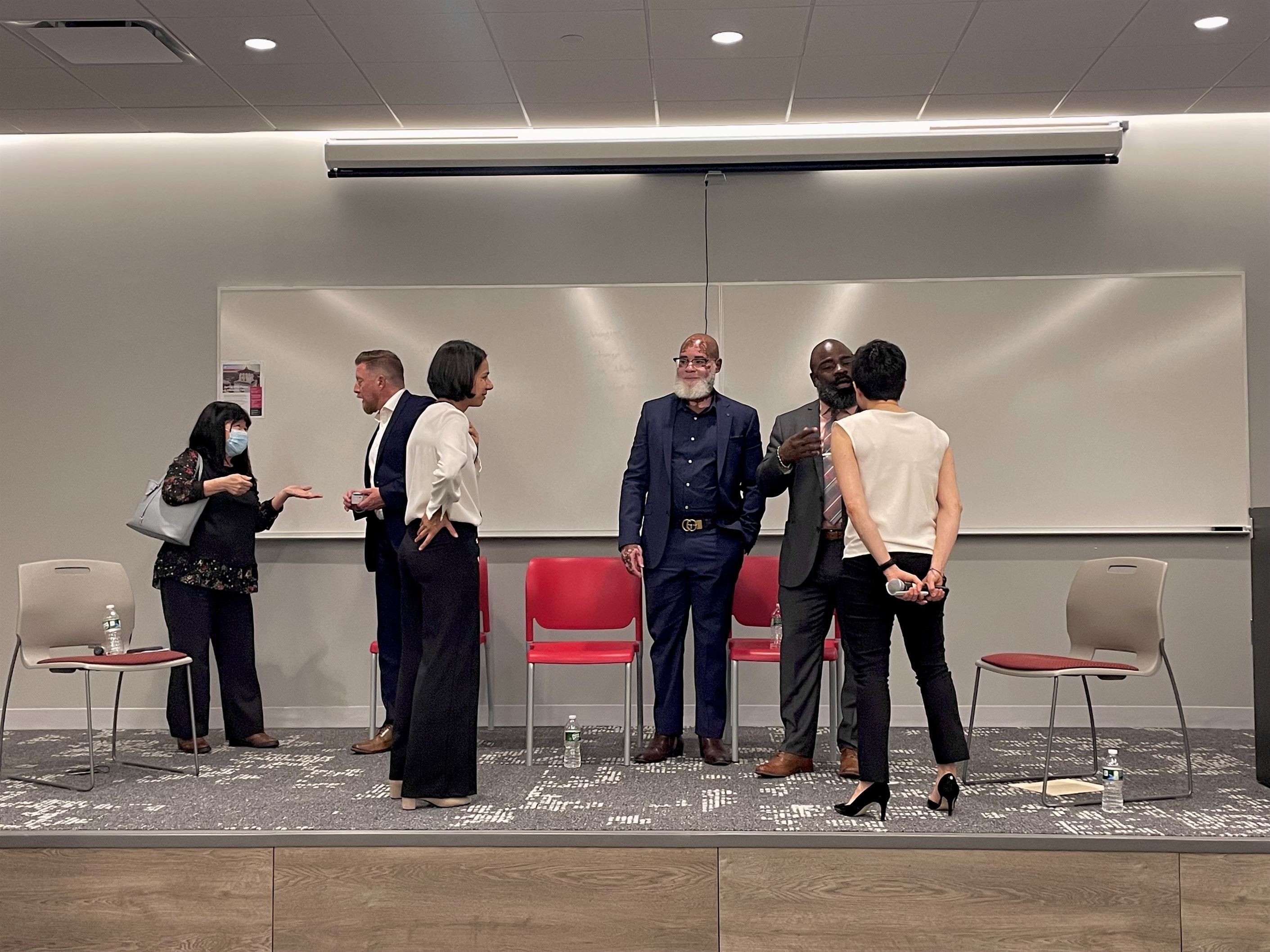Don Ike Jones, a former juvenile lifer, grabs the microphone in a lecture room at Dickson Hall, leans into it and takes a breath. After gathering his thoughts, Jones answers a question prompted by associate psychology professor Dr. Tina Zottoli.
“We are not our worst mistakes,” Jones said. “We don’t want to be defined by what we did 20 or 30 years ago. We are individuals and we want to be treated as such.”
Former juvenile lifers took a trip to Dickson Hall on April 13 to speak with associate justice studies professor Dr. Tarika Daftary Kapur and Zottoli to discuss the issues surrounding lengthy prison sentences for youth.
The panel “Don’t Throw Away The Key: Changing Perspectives on Juvenile Life Without Parole,” featured both Jones and Donnell Drinks, who now both work with the District Attorney’s Office in Philadelphia, Pennsylvania. Drinks works as a mentor and reentry specialist for Gaining Respect Over Our Worst Nights (GROWN) and Jones works as a Crime Intervention Specialist for the District Attorney’s Office.
Preston Shipp, senior policy counsel at Campaign for Fair Sentencing of Youth was also in attendance alongside Drinks and Jones to discuss how he guides states looking to eliminate juvenile life without parole sentencing.
Shipp wants the public to change their perspective on what punishment actually does to an individual and the social issues these extreme punishments create.
“We can’t punish our way out of every problem and I think that’s what we’re trying to do,” Shipp said. “Juvenile life without parole is an extreme example of that. When you have someone on lifetime parole, that is institutional control forever. It’s permanent political disenfranchisement forever; legal discrimination forever.”
Both Jones and Drinks shared their experiences being handed juvenile life without parole sentences and what the opportunity for a second chance meant to both of them.
Drinks, who was released in 2018 and served 27 years in prison, wanted a chance for redemption.
“It gave me the opportunity to show the development of who I was as a person,” Drinks said. “Up until that point, I was only a convicted murderer and I know I’m so much more than that. Now, I’m not only working for me, but for my victims. So, it was an opportunity for redemption.”
Jones, who was released in 2019, saw his overruling as an opportunity to finally be with his family, despite many passing away while he was incarcerated. He also saw it as an opportunity to show how he has changed throughout the years.
“Going in at 17, we weren’t fully developed,” Jones said. “We weren’t who we were going to become now. This gave me the opportunity to show who I am now.”

The panelists met with audience members after the panel was over to answer any remaining questions.
Amanda Alicea | The Montclarion
Drinks and Jones participated in organizational work while incarcerated and worked hard to make a positive impact on inmates and wherever they could volunteer. It was in prison where Drinks found his passion for organizational work.
“We didn’t have a voice,” Drinks said. “A lot of us stood our ground and tried to do the right thing, but we didn’t have a seat at the table. I wanted a seat at the table, so I decided to take over an organization. I needed to be heard.”
Despite knowing they wanted to reintegrate into society early on after becoming involved in organizational work, both Drinks and Jones had difficult reintegration processes following their release, especially since they were given parole for the rest of their lives.
Drinks struggled to find work after his release and had a hard time owning up to his truth and the backstory that came with it. Jones struggled to navigate relationships and had to romantically mature very fast.
“Going into prison that young, I lacked a lot of the skills people had,” Jones said. “Coming home and navigating relationships was difficult. I didn’t know how to be with a woman in the outside world. I was 44, but relationship-wise, I was still 17 years old.”
Because reintegration was intense for Jones and Drinks, they offered advice to those who want to ethically assist people in their reintegration process after release.
“Vouch for people, donate clothing for job interviews [and] help find housing,” Drinks said. “The smallest things in a genuine manner help with the reentry process, [so] be receptive to them.”
The panel was held following the research of Kapur and Zottoli, which was conducted on juvenile lifers back in 2019 when working with District Attorney Larry Krasner. Kapur and Zottoli met both Jones and Drinks when gathering their research on released juvenile lifers and the reintegration process.



